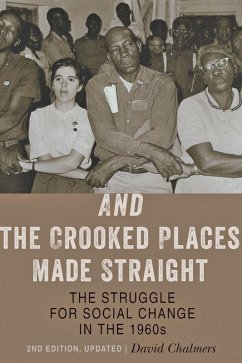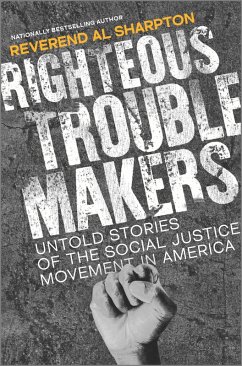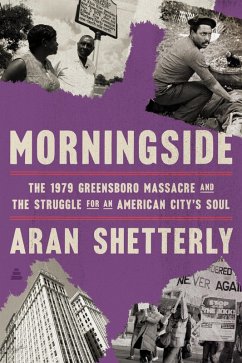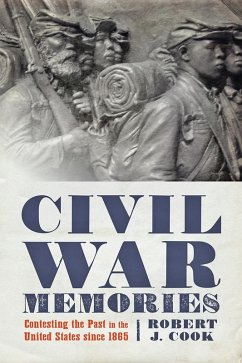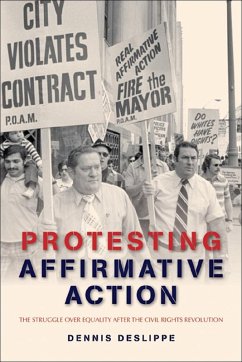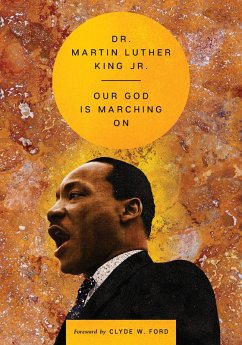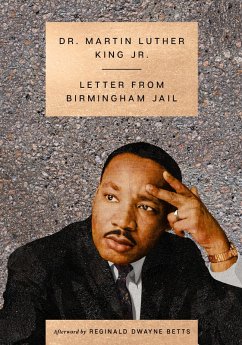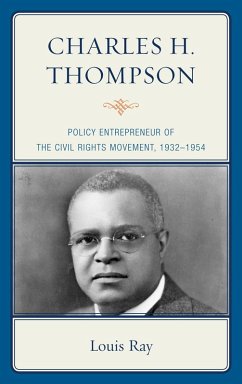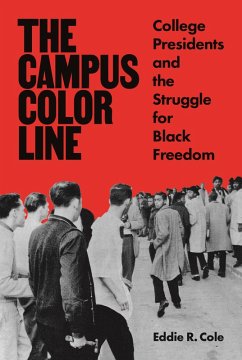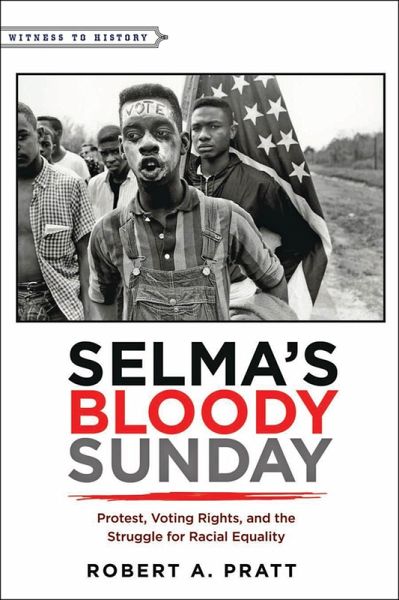
Selma's Bloody Sunday (eBook, ePUB)
Protest, Voting Rights, and the Struggle for Racial Equality

PAYBACK Punkte
5 °P sammeln!
"A fresh look at this historical crossroads which marked the culmination of the Civil Rights Movement... timely and engaging." -Patricia Sullivan, author of Justice Rising On Sunday afternoon, March 7, 1965, roughly six hundred peaceful demonstrators set out from Brown Chapel A.M.E. Church in a double-file column to march from Selma, Alabama, to the state capital of Montgomery. Leading the march were Hosea Williams of the Southern Christian Leadership Conference and John Lewis of the Student Nonviolent Coordinating Committee. Upon reaching Broad Street, the marchers turned left to cross the Ed...
"A fresh look at this historical crossroads which marked the culmination of the Civil Rights Movement... timely and engaging." -Patricia Sullivan, author of Justice Rising On Sunday afternoon, March 7, 1965, roughly six hundred peaceful demonstrators set out from Brown Chapel A.M.E. Church in a double-file column to march from Selma, Alabama, to the state capital of Montgomery. Leading the march were Hosea Williams of the Southern Christian Leadership Conference and John Lewis of the Student Nonviolent Coordinating Committee. Upon reaching Broad Street, the marchers turned left to cross the Edmund Pettus Bridge that spanned the Alabama River. The violence and horror that was about to unfold at the foot of the bridge would forever mark the day as "Bloody Sunday," one of the pivotal moments of the civil rights movement. Alabama state troopers fell on the unarmed protestors as they crossed the bridge, beating and tear gassing them. In Selma's Bloody Sunday, Robert A. Pratt offers a vivid account of that infamous day and the indelible triumph of black and white protest over white resistance. He explores how the march itself-and the 1965 Voting Rights Act that followed-represented a reaffirmation of the nation's centuries-old declaration of universal equality and the fulfillment of the Fifteenth Amendment to the Constitution. Selma's Bloody Sundayoffers a fresh interpretation of the ongoing struggle by African Americans to participate freely in America's electoral democracy. Jumping forward to the present day, Pratt uses the march as a lens through which to examine disturbing recent debates concerning who should, and who should not, be allowed to vote.
Dieser Download kann aus rechtlichen Gründen nur mit Rechnungsadresse in A, B, BG, CY, CZ, D, DK, EW, E, FIN, F, GR, HR, H, IRL, I, LT, L, LR, M, NL, PL, P, R, S, SLO, SK ausgeliefert werden.




